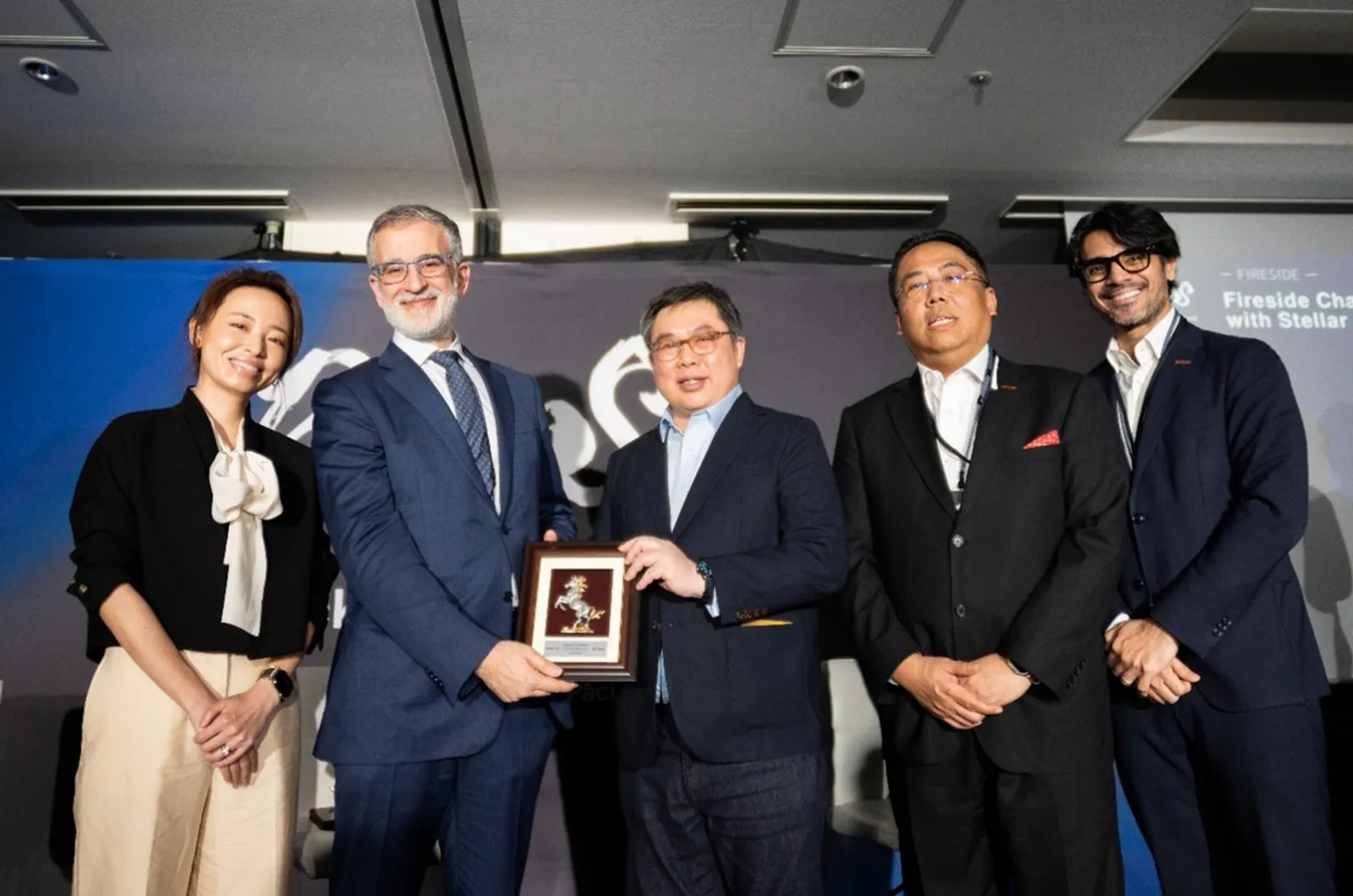In an ambitious bid to steer Africa towards a more prosperous and inclusive future, economic stakeholders from across the continent are set to gather in Kigali, Rwanda, for the “100 Most Notable Africans Leadership and Business Summit 2025.” The three-day event, scheduled for July 4-6 at the Marriott Hotel Kigali, promises to be a dynamic platform for dialogue on governance, business growth, investment opportunities, and sustainable development.
A Vision for Africa’s Future
Ambassador Kingsley Amafibe, the project director for Africa at the summit, outlined the event’s core objective during an interview with the News Agency of Nigeria in Abuja on March 26, 2025. “Africa is currently facing its share of global economic challenges,” he noted. “We need to embrace open dialogue and forge collaborative partnerships if we are to transform these challenges into opportunities for growth.”
At its heart, the summit is designed to look inward, inviting African leaders to reflect on and address the unique trends, challenges, and opportunities that define the continent’s economic landscape. With the theme “Leadership Frameworks for Governance, Business Growth, Investment Opportunities and Sustainable Development in Africa,” the summit aims to bring together a diverse group of stakeholders from both public and private sectors. This gathering is intended to provide a holistic perspective on Africa’s economic growth, combining insights from government officials, corporate leaders, academics, and civil society.
The Summit’s Agenda: A Multifaceted Approach
The summit is poised to be an all-encompassing forum, featuring keynote addresses, vibrant panel discussions, specialized workshops, and interactive sessions geared toward achieving inclusive economic opportunities and job creation. Participants will engage in debates on futuristic governance policies, nascent business capacity enhancement, and the streamlining of businesses to thrive in today’s competitive market.
Key Themes and Sessions
- Futuristic Governance Policy:
As Africa confronts rapid changes driven by technological advancements and shifting global economic dynamics, there is an urgent need to adapt governance models. Experts will discuss strategies to enhance transparency, accountability, and regulatory frameworks that can facilitate sustainable economic growth. - Business Capacity Enhancement:
The summit will delve into the challenges and opportunities faced by African businesses, particularly in scaling operations, integrating digital technologies, and accessing global markets. Delegates will share best practices and innovative strategies aimed at boosting competitiveness in a globalized economy. - Sectoral Reforms and Infrastructure Development:
Critical sectors such as education, agriculture, and infrastructural improvement will be in focus, with discussions on how to modernize these areas to support job creation and empower the continent’s young leaders. Delegates will explore how public-private partnerships can drive systemic reforms and foster an environment conducive to sustainable development. - Investment Opportunities and Financial Inclusion:
With a spotlight on unlocking Africa’s vast investment potential, sessions will address the importance of attracting both domestic and foreign investment. Leaders will consider strategies to improve the investment climate, streamline regulatory processes, and ensure that economic growth is inclusive and benefits all segments of society.
Notable Delegates and Speakers
The summit’s success hinges on the participation of key industry players and thought leaders from diverse sectors. Among the confirmed speakers are:
- Governor Umar Namadi of Jigawa: Known for his progressive policies and focus on economic diversification, Governor Namadi will share insights on regional economic development and the role of local governance in driving national growth.
- Dr. Imane Kendili, Chief Executive Officer, Global Health Morocco: With a wealth of experience in the global health sector, Dr. Kendili will address the intersection of health, economic growth, and sustainable development—an area that has gained renewed importance in the wake of recent global health challenges.
- Prof. Mthuli Ncube, Minister of Finance, Economic Development and Investment Promotion, Republic of Zimbabwe: Prof. Ncube is set to provide a comprehensive overview of fiscal policies, investment promotion, and the financial reforms necessary to support economic stability across Africa.
- Dr. Nimi Briggs, Chief Executive Officer, NIMPAT Group: As a leading figure in corporate innovation, Dr. Briggs will discuss the role of entrepreneurship and technology in reshaping Africa’s economic future.
Additional delegates include senior executives, policymakers, and representatives from academia, security, entertainment, and civil society. The diverse representation is expected to foster a rich exchange of ideas, with participants drawing on varied experiences and perspectives.
A Platform for Inclusive Dialogue
The summit’s emphasis on inclusivity is a defining feature. Ambassador Amafibe stressed that the event is not just about high-level discussions but also about bridging gaps between different segments of society. “We shall assemble pacesetters across sectors—business, government, academia, security, entertainment, and civil society—to discuss issues ranging from sustainable development to economic prosperity,” he explained. The summit will also feature the “Leadership and Excellence Honor,” which will recognize and celebrate outstanding contributions by Africans in peace and security, women leadership, and young entrepreneurship.
By recognizing exemplary individuals, the summit aims to inspire future generations and reinforce the message that leadership and excellence are integral to Africa’s development narrative.
Context: Africa’s Economic Landscape Today
Global Economic Challenges and Opportunities
Africa’s economic journey is marked by a unique blend of challenges and opportunities. On one hand, the continent faces external pressures such as global market volatility, shifting trade dynamics, and the lingering impacts of geopolitical tensions. On the other hand, Africa boasts a wealth of untapped potential—young and dynamic populations, abundant natural resources, and a rapidly evolving technological landscape.
In recent years, African economies have increasingly demonstrated resilience. Despite global headwinds, many countries have recorded steady GDP growth, and initiatives aimed at financial inclusion and technological innovation have begun to reshape traditional economic paradigms. This transformation is further supported by the continent’s commitment to structural reforms, improved regulatory environments, and enhanced public-private collaborations.
The Role of Leadership in Driving Economic Transformation
Effective leadership is often the linchpin of economic transformation. Across Africa, visionary leaders have shown that proactive governance, strategic investments, and innovative policies can significantly alter a nation’s economic trajectory. The summit’s focus on “Leadership Frameworks for Governance, Business Growth, Investment Opportunities and Sustainable Development in Africa” reflects this reality.
Delegates at the summit are expected to explore how adaptive and forward-thinking leadership can address contemporary challenges—be it through policy reforms that stimulate business growth or initiatives that harness the potential of Africa’s burgeoning youth population. The dialogue will also address how leadership can create an enabling environment where businesses can flourish and where economic benefits are equitably shared among all citizens.
Case Studies and Success Stories
Several success stories from across the continent underscore the transformative power of effective leadership and strategic partnerships. For instance, Rwanda itself has become a beacon of economic reform and innovation. Over the past two decades, Rwanda has made remarkable strides in improving governance, enhancing public services, and attracting international investment. Kigali’s rise as a hub for conferences and international summits is a testament to the country’s commitment to economic excellence and sustainable development.
Other nations, such as Ghana and Kenya, have also demonstrated significant progress in diversifying their economies and fostering an environment conducive to business growth. These stories serve as powerful reminders that, with the right leadership and collaborative spirit, Africa can overcome its challenges and unlock its vast potential.
The Summit’s Broader Impact on the Continent
Strengthening Intra-African Cooperation
One of the key objectives of the summit is to bolster intra-African cooperation. In an era where regional integration is increasingly recognized as a driver of economic success, the summit provides a unique opportunity for African leaders to forge partnerships that transcend national boundaries. By creating networks and fostering dialogue among stakeholders from different countries, the summit aims to promote a sense of shared destiny and collective responsibility for the continent’s future.
This collaborative approach is critical for addressing challenges that are inherently transnational, such as infrastructure development, energy security, and climate change. By pooling resources and expertise, African nations can better tackle these issues and create a more resilient and integrated regional economy.
Catalyzing Investment and Innovation
Investment and innovation are at the heart of any economic transformation. The summit will serve as a catalyst for attracting new investments into key sectors such as technology, agriculture, manufacturing, and renewable energy. With discussions centered around the creation of favorable investment climates and the removal of bureaucratic hurdles, the event is expected to generate actionable insights that can be implemented at both national and regional levels.
Moreover, the summit will highlight opportunities for technological innovation—particularly in areas that have the potential to revolutionize traditional industries. From fintech solutions that enhance financial inclusion to agricultural technologies that boost productivity, the discussions are likely to inspire new initiatives that can drive sustainable growth across the continent.
Social and Economic Empowerment
Beyond the economic and technical dimensions, the summit has a strong social mandate. The focus on empowering young leaders and recognizing excellence in various fields underscores the importance of social inclusion in economic development. By creating platforms for mentorship, training, and networking, the summit seeks to empower the next generation of African leaders who will be at the forefront of driving change.
This commitment to empowerment is particularly significant in a continent with a burgeoning youth population. By harnessing the energy and creativity of young entrepreneurs and innovators, Africa can build a more dynamic and inclusive economy that leaves no one behind.
Humanizing the Narrative: Voices from the Field
For many delegates and stakeholders, the summit represents more than just a business conference—it is a movement towards a more equitable and prosperous Africa. Conversations on the ground have already begun to capture the human element behind the economic statistics. Leaders, entrepreneurs, and community advocates share stories of resilience and determination, recounting how strategic partnerships and visionary leadership have transformed their communities.
For example, local business owners in Kigali express optimism about the increased focus on sustainable development and innovation. “This summit gives us hope,” says a Nairobi-based entrepreneur. “It’s about more than just numbers—it’s about real change, creating jobs, and improving lives.” Such testimonials are a powerful reminder that at its core, economic growth is about enhancing the quality of life for all citizens.
Similarly, policy makers emphasize that the summit’s outcomes could pave the way for initiatives that directly impact communities—from improved infrastructure and better educational facilities to enhanced healthcare services and job opportunities. The convergence of these diverse voices creates a rich tapestry that encapsulates the spirit of Africa’s drive for progress.
Looking Forward: Challenges and Opportunities
While the summit paints an optimistic picture, it also acknowledges the myriad challenges that lie ahead. Global economic uncertainties, political instability in certain regions, and lingering impacts of past economic crises remain pertinent issues that need addressing. However, the consensus among participants is that these challenges are surmountable with the right mix of innovation, collaboration, and visionary leadership.
Navigating Global Economic Uncertainties
Africa’s integration into the global economy has brought with it both opportunities and vulnerabilities. Trade tensions, fluctuating commodity prices, and shifts in global financial markets can have a significant impact on the continent’s economic trajectory. The summit will explore strategies to mitigate these risks—ranging from diversifying export markets to enhancing the resilience of domestic industries through technological upgrades and improved regulatory frameworks.
Policy Recommendations and the Way Forward
A major outcome expected from the summit is a set of actionable policy recommendations aimed at creating a more conducive environment for economic growth. These recommendations are likely to address issues such as improving ease of doing business, fostering innovation ecosystems, and enhancing fiscal discipline. Policymakers will have the opportunity to debate and refine strategies that not only stimulate growth but also ensure that the benefits of that growth are distributed equitably.
One of the key policy areas under discussion will be the promotion of sustainable development practices. With climate change posing an existential threat, African nations must balance economic expansion with environmental stewardship. The summit is expected to generate ideas on how to integrate green technologies, promote renewable energy, and implement policies that encourage sustainable resource management.
Conclusion: A New Dawn for Africa
As stakeholders prepare to converge in Kigali this July, the “100 Most Notable Africans Leadership and Business Summit 2025” stands as a beacon of hope and transformation for the continent. It is a unique opportunity for African leaders to collectively address the challenges of today while laying the foundation for a brighter, more inclusive future.
By fostering open dialogue, promoting cross-sector collaboration, and empowering future generations, the summit is poised to catalyze a new era of economic growth and sustainable development in Africa. The convergence of visionary leaders—from Governor Umar Namadi and Dr. Imane Kendili to Prof. Mthuli Ncube and Dr. Nimi Briggs—underscores the event’s significance as a melting pot of ideas and a platform for transformative change.
In the words of Ambassador Kingsley Amafibe, “It is time to look inward, discuss, and explore key trends, challenges, and opportunities shaping the global business landscape, particularly as they affect our continent.” This call to action resonates deeply in today’s complex economic environment, where the stakes are high and the potential for positive change is immense.
As the summit unfolds, the discussions and outcomes are expected to influence not only the policies and strategies of individual nations but also the collective direction of Africa’s economic future. In this moment of convergence, Africa is not merely responding to global challenges—it is seizing the opportunity to redefine its destiny, driven by innovation, collaboration, and an unwavering commitment to progress.
Ready to take your career to the next level? Join our dynamic courses: ACCA, HESI A2, ATI TEAS 7 , HESI EXIT , NCLEX – RN and NCLEX – PN, Financial Literacy!🌟 Dive into a world of opportunities and empower yourself for success. Explore more at Serrari Ed and start your exciting journey today! ✨
photo source: Google
By: Montel Kamau
Serrari Financial Analyst
27th March, 2025
Article, Financial and News Disclaimer
The Value of a Financial Advisor
While this article offers valuable insights, it is essential to recognize that personal finance can be highly complex and unique to each individual. A financial advisor provides professional expertise and personalized guidance to help you make well-informed decisions tailored to your specific circumstances and goals.
Beyond offering knowledge, a financial advisor serves as a trusted partner to help you stay disciplined, avoid common pitfalls, and remain focused on your long-term objectives. Their perspective and experience can complement your own efforts, enhancing your financial well-being and ensuring a more confident approach to managing your finances.
Disclaimer: This article is for informational purposes only and does not constitute financial advice. Readers are encouraged to consult a licensed financial advisor to obtain guidance specific to their financial situation.
Article and News Disclaimer
The information provided on www.serrarigroup.com is for general informational purposes only. While we strive to keep the information up to date and accurate, we make no representations or warranties of any kind, express or implied, about the completeness, accuracy, reliability, suitability, or availability with respect to the website or the information, products, services, or related graphics contained on the website for any purpose. Any reliance you place on such information is therefore strictly at your own risk.
www.serrarigroup.com is not responsible for any errors or omissions, or for the results obtained from the use of this information. All information on the website is provided on an as-is basis, with no guarantee of completeness, accuracy, timeliness, or of the results obtained from the use of this information, and without warranty of any kind, express or implied, including but not limited to warranties of performance, merchantability, and fitness for a particular purpose.
In no event will www.serrarigroup.com be liable to you or anyone else for any decision made or action taken in reliance on the information provided on the website or for any consequential, special, or similar damages, even if advised of the possibility of such damages.
The articles, news, and information presented on www.serrarigroup.com reflect the opinions of the respective authors and contributors and do not necessarily represent the views of the website or its management. Any views or opinions expressed are solely those of the individual authors and do not represent the website's views or opinions as a whole.
The content on www.serrarigroup.com may include links to external websites, which are provided for convenience and informational purposes only. We have no control over the nature, content, and availability of those sites. The inclusion of any links does not necessarily imply a recommendation or endorsement of the views expressed within them.
Every effort is made to keep the website up and running smoothly. However, www.serrarigroup.com takes no responsibility for, and will not be liable for, the website being temporarily unavailable due to technical issues beyond our control.
Please note that laws, regulations, and information can change rapidly, and we advise you to conduct further research and seek professional advice when necessary.
By using www.serrarigroup.com, you agree to this disclaimer and its terms. If you do not agree with this disclaimer, please do not use the website.
www.serrarigroup.com, reserves the right to update, modify, or remove any part of this disclaimer without prior notice. It is your responsibility to review this disclaimer periodically for changes.
Serrari Group 2025
















